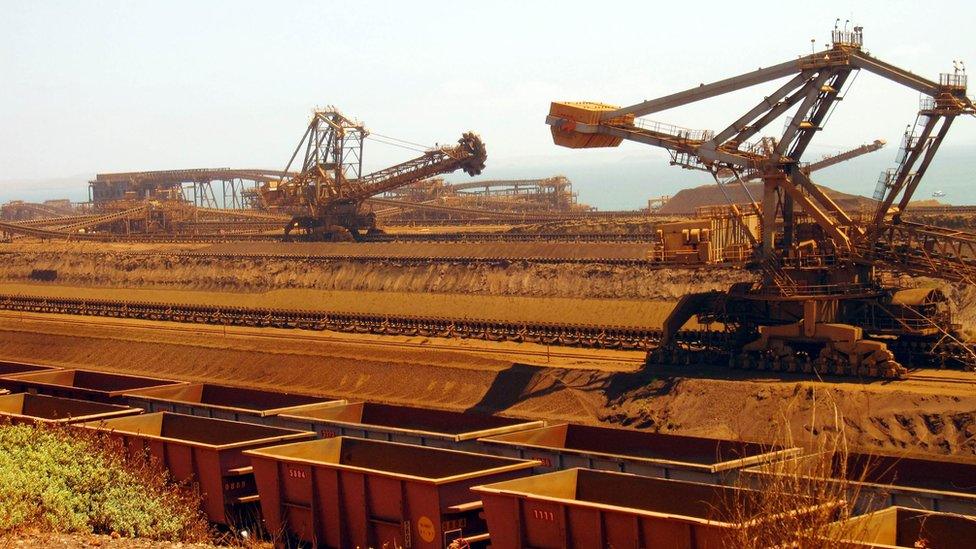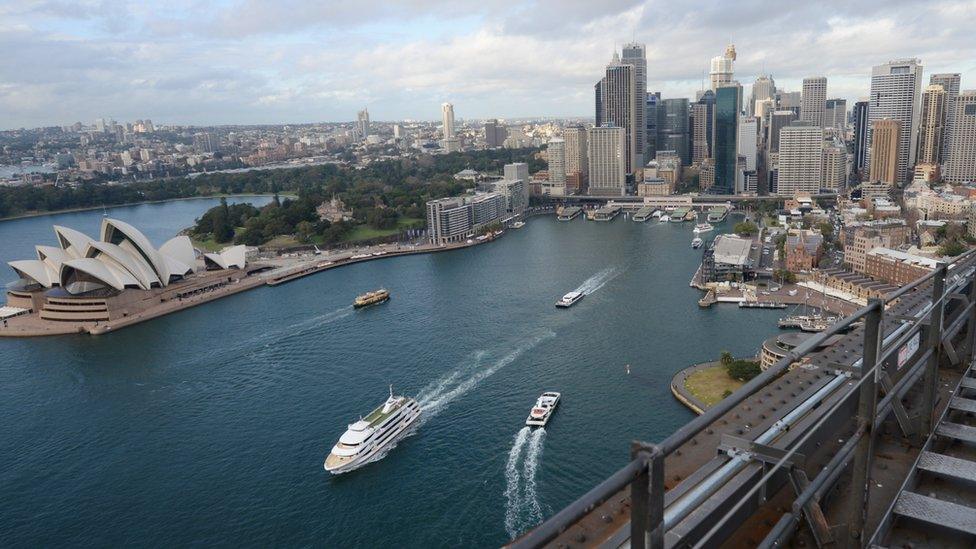Australia goes 25 years without recession
- Published
Australian economy has been recession-free for 25 years
Australia's economy gained momentum in the last quarter of 2016, allowing the resource-rich economy to extend its 25-year streak without recession.
It brings the country close to breaking the Netherlands' record of modern-era uninterrupted economic growth.
Australia's economy had contracted in the third quarter but the surprise 1.1% rise pulled the annual figure back to a 2.4% growth rate.
The recovery was attributed largely to strong exports and consumer spending.
Mining and agriculture enjoyed relatively strong growth in the three months to December.
Iron ore and coal are Australia's biggest exports and reduced demand from China has cooled a mining boom and hurt the Australian economy.
Australia has not had a recession - defined as two consecutive quarters of negative growth - since June 1991.
It is now just one quarter short of the Dutch record set between 1982 and 2008.

Australia is heavily dependant on global commodity prices
Treasurer Scott Morrison welcomed a 2% rise in business investment in December - the first rise after a dozen quarters of decline.
"Our growth continues to be above the OECD average and confirms the successful change that is taking place in our economy as we move from the largest resources investment boom in our history to broader-based growth," he said.
'Bright' outlook
ANZ analysts said the figures confirmed that the weakness in the third quarter "was only temporary, and underlying momentum in the economy remains solid".
Capital Economics chief Australia economist Paul Dales said the economy was firmly "back on track".
"The decent rebound in real GDP in the fourth quarter doesn't just dash any lingering fears that Australia was in a recession, but it also boosts hopes that the surge in commodity prices will trigger a rapid recovery," he said.
"The outlook for the next year is reasonably bright," Shane Oliver of AMP Capital told the BBC. "We are seeing a pickup in export volumes and we have seen a big rebound in key commodity prices."
Mr Oliver added: "Growth should probably get back to 2.5%, maybe 3% over the course of this year."
Estimates by the country's central bank point to economic growth rising to about 3% for 2017 on the back of recovering commodity prices.
- Published7 December 2016
